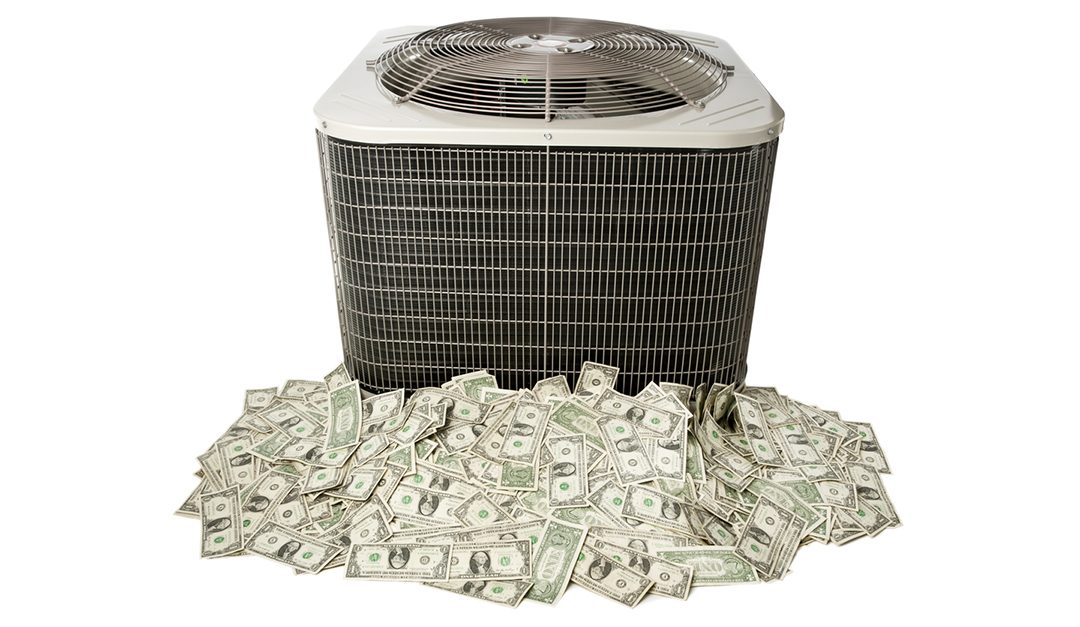(TNS)—The cost of cooling a home in the middle of summer is enough to make you sweat if money is tight. Electricity demand can get so high that it triggers power outages, according to Edison International, one of the nation’s largest utilities distributors. Talk about sweating.
You can’t control the temperature outside, but there are things you can do to make your house cooler and minimize air conditioning costs. Use these tips to save money and beat the heat.
- Plant Trees Around Your House
“Most heat that accumulates inside a house comes directly from the sun shining onto the roof or through windows, and heating the house directly,” says John Krigger, founder and president of Saturn Resource Management in Helena, Mont. Krigger, an energy conservation specialist, writes books, lectures and trains others in energy conservation for buildings.
Planting leafy trees around the outside of your home will help block the sun and cool your house.
“Even for the cost of going to the nursery and buying a 15- to 20-foot-tall tree, trees are still the best value,” Krigger says.
Using trees or shrubs to shade your air conditioner can increase its efficiency by up to 10 percent, according to the U.S. Department of Energy.
- Clothe Your Windows
During cool seasons, about 76 percent of sunlight on windows enters in the form of heat, according to the U.S. Department of Energy. Solar screens, or mesh-like window screens, can intercept this energy before it gets into the house. Window screens are particularly effective on east- and west-facing windows.
Window films are another option. They are transparent, metalized sheets that reflect heat before it can be transmitted through glass. However, windows must be shut for window films to work, while solar screens do double duty, keeping sun and insects out, even with the windows open.
- Flip a Switch
Try to raise your air conditioner’s thermostat setting to 78 degrees Fahrenheit when you’re at home, and at a higher temperature while you’re at work. You can save as much as 10 percent on your power bills by raising the temperature setting on your thermostat when you’re not home, says the U.S. Department of Energy.
Some people might forget to raise their air conditioner before they leave for the day—this can be a frustrating realization while at work. Programmable thermostats can be put on a set schedule to adjust the temperature for certain hours each day of the week. That way, you’ll never leave the air conditioner running on high when it doesn’t need to be—and you might save some money on your energy bill as a result.
- Run Some Fans
If possible, operate fans on your home’s upper level and open the windows on a lower level. If you live in a one-story house or apartment, close windows near the fan and open windows in rooms far from the fan, preferably on your home’s windward side, the U.S. Department of Energy advises. Krigger says the key is to circulate air inside the house.
Moving air also helps evaporate the sweat from your skin, says Paul Scheckel, author of “The Home Energy Diet.”
“Evaporational cooling is an incredibly efficient process for removing heat, and our bodies do it all by themselves. A little help can increase the cooling effect,” Scheckel says.
- Chill in the Basement
Camp out in your basement, advises Stan Cox, a scientist, environmental writer and author of “Losing Our Cool: Uncomfortable Truths About Our Air-Conditioned World (and Finding New Ways to Get Through the Summer).” In your eco-cooled basement, a TV, a couch and a cold drink may be all you need.
Scheckel warns against opening basement windows when outdoor air is heavy with humidity.
“Warm, moist air will cause condensation on cool surfaces such as basement walls, ultimately increasing the humidity in your home,” Scheckel says.
- Avoid Using the Stove and Oven
Don’t cook on the stovetop or use your oven during hot spells. Reduce indoor heat by cooking in the microwave, firing up the outdoor grill or eating cooler foods, such as salads and fruit. If you must bake lasagna for tomorrow’s potluck, do it in the evening. After cooking, turn on the kitchen exhaust fan. Turn on the bathroom exhaust fan after a hot shower to help the heat dissipate.
- Maintain or Replace Your AC
Air conditioners cost homeowners in the U.S. about $29 billion annually. When it comes to faulty equipment, a less efficient AC can result in a higher electric bill.
“AC efficiency is mostly a function of the technology,” Scheckel says. “Keep the filter clean to allow for good air movement and keep the unit level so the condensation drains properly.”
You can cut your energy costs in half by swapping your older air conditioner for a newer, more efficient unit. Look for a high energy efficiency ratio, or EER, or an Energy Star-qualified unit. Higher EER ratings indicate a more efficient air conditioner. Energy Star is a system used by the U.S. government to designate energy-efficient products.
- Let Humidity Dictate Cooling Settings
Put the air-conditioner fan speed on high, except on very humid days, according to the U.S. Department of Energy. On humid days, put the fan speed on low. The slower air movement through the air-conditioning equipment removes more moisture from the air, improving comfort in your home.
- Splash in the Bath
Step in the shower, hop in a pool, spray yourself with a water bottle or use a cool cloth on the back of your neck. If you don’t chill out right away, don’t give up.
“Our comfort range depends on the temperatures we have experienced in recent days and weeks,” says Cox. “The body and mind adjust to rising temperatures.”
©2019 Bankrate.com
Distributed by Tribune Content Agency, LLC




